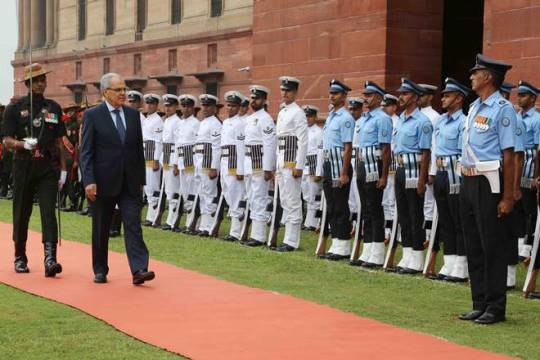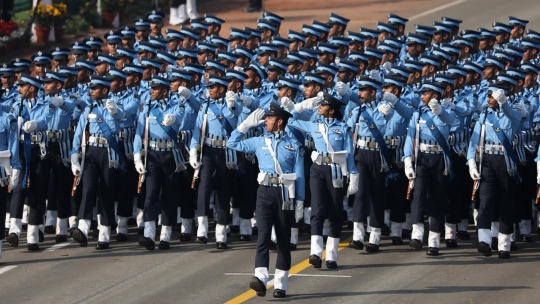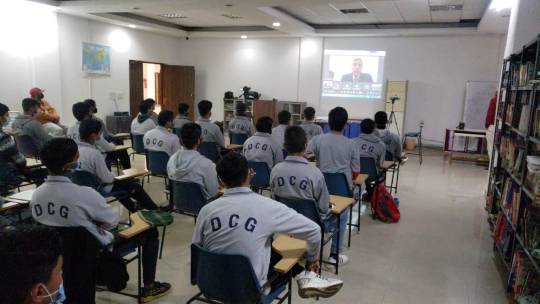#upsc syllabus ignorance
Text
Negative Habits to Avoid for UPSC Preparation
Imagine preparing for the UPSC exam is like setting off on a thrilling adventure. But just like any adventure, there are challenges to overcome. It takes a lot of hard work, sticking to your goals, and having a good plan. But, sometimes, even if you're really trying your best, you might find yourself doing things that could make it harder for you to succeed. In this guide, we'll explore common negative habits faced by UPSC aspirants and provide straightforward solutions to overcome them. By implementing these simple strategies, aspirants can navigate through challenges effectively and achieve success in their UPSC journey.
Procrastination - Putting Off Tasks

Procrastination is when we delay tasks or waste time on unimportant things. Many UPSC aspirants struggle with procrastination, which can lead to missed study sessions and last-minute pressure.
To overcome procrastination, break your study tasks into smaller, manageable parts. To create a sense of urgency, establish particular deadlines for every task. By taking small steps consistently, you can avoid procrastination and stay on track with your study schedule.
“You may delay, but time will not.”
― Benjamin Franklin
There are always distractions, if you allow them! Successful people remain optimistic and concentrated on their goals regardless of their surroundings. They stay focused. They avoid getting distracted, which is common in today's digital world. Social media, notifications, and other distractions can easily divert our attention away from studying.
To avoid distractions, create a dedicated study space that is free from potential distractions. Turn off notifications on your phone and use productivity tools to block distracting websites. Set specific times for studying and avoid multitasking. By minimizing distractions, you can improve focus and productivity during your study sessions.
Distractions - Losing Focus

“Work is hard. Distractions are plentiful. And time is short.”
― Adam Hochschild
Lack of Consistency

Consistency is really important for doing well in UPSC preparation. It’s key to success. However, many aspirants struggle to maintain a consistent study routine.
To overcome this, establish a daily study schedule and stick to it religiously. Make sure you stick to your study schedule and give it more importance than other things. Set realistic goals for each study session and keep checking how well you're doing. By making studying a habit and sticking to a consistent routine, you can maximize your productivity and progress in your UPSC preparation.
“Success isn't always about greatness. It's about consistency.
Consistent hard work leads to success. Greatness will come.”
― Dwayne Johnson
Neglecting Health and Adequate Sleep

UPSC preparation can be mentally and physically demanding, and many aspirants neglect their health in pursuit of their goals. However, neglecting your health can have negative consequences on your ability to study effectively. Sleep is essential for cognitive function, memory retention, and overall well-being. However, many aspirants neglect their sleep in favor of studying late into the night. This can lead to sleep deprivation, which can impair your ability to focus, concentrate, and retain information.
To prioritize your health, make sure to get an adequate amount of sleep each night. Aim for at least 7-8 hours of sleep to ensure that your mind and body are well-rested. In addition, make time for regular exercise and physical activity to reduce stress and improve overall well-being. Finally, don't forget to eat a balanced diet and stay hydrated to fuel your body and brain for studying.
Relying on One Study Method

Every aspirant has their own preferred study method, whether it's reading, taking notes, or practicing past papers. However, relying solely on one study method can limit your learning and comprehension.
To overcome this, try diversifying your study methods to engage different parts of your brain. For example, if you're used to reading, try incorporating more visual aids or discussing concepts with peers. Try out various methods of studying until you discover which one suits you the most. By diversifying your study methods, you can improve your understanding and retention of the material.
Negative self-talk can be dangerous to your confidence and motivation. Many aspirants struggle with self-doubt and fear of failure, which can hold them back from reaching their full potential.
To overcome negative self-talk, practice self-compassion and positive affirmations. Instead of focusing on your shortcomings, celebrate your achievements and strengths. Be around friends and family who support you and have faith in your skills. By cultivating a positive mindset and practicing self-love, you can overcome self-doubt and achieve success in your UPSC journey.
Negative Self-Talk - Self-Doubt

"One important key to success is self-confidence.
An important key to self-confidence is preparation."
― Arthur Ashe
Trying to Read Everything

UPSC aspirants are often overwhelmed by the sheer volume of reading material available. Many aspirants feel pressured to read every book and resource on a given topic, leading to stress and burnout.
To overcome this, focus on quality over quantity when it comes to reading. Prioritize essential books and resources that cover the core concepts and topics of the UPSC syllabus. Take notes as you read to help reinforce your understanding and retention of the material. Remember, it's better to thoroughly understand a few key concepts than to skim/go through numerous resources without grasping the core concepts.
Disorganization can hinder your ability to study effectively and efficiently. Many aspirants struggle to keep track of study materials, deadlines, and important dates.
To overcome this, create a study schedule and organize your study materials in a systematic manner. Use folders, binders, or digital tools to keep your study materials organized and easily accessible. Break down your study schedule into smaller, manageable tasks and set deadlines for each task. By staying organized, you can reduce stress and improve productivity in your UPSC preparation.
Lack of Organization

“For every minute spent organizing, an hour is earned.”
― Benjamin Franklin
Misplaced Study Groups

Study groups can be a valuable resource for UPSC aspirants, providing support, motivation, and shared knowledge. However, not all study groups are created equal, and some aspirants may find themselves in study groups that are not conducive to effective studying.
To overcome this, choose study partners wisely and find individuals who are serious and committed to their UPSC goals. Look for study groups or forums where you can engage with like-minded aspirants who share your dedication and enthusiasm for UPSC preparation. By surrounding yourself with supportive and motivated study partners, you can enhance your learning and stay on track with your UPSC goals.
Overcoming negative habits is essential for UPSC aspirants to succeed in their journey. By implementing simple strategies such as breaking tasks into smaller parts, minimizing distractions, maintaining consistency, prioritizing health, diversifying learning methods, fostering a positive mindset, finding a balance between work and study, focusing on quality reading, staying organized, choosing study partners wisely, using the internet judiciously, and prioritizing sleep, aspirants can navigate through challenges effectively and achieve success in their UPSC preparation. Remember, success in the UPSC examination requires dedication, perseverance, and a willingness to overcome obstacles. Keep pushing forward, stay focused on your goals, and believe in yourself—victory is within reach!
#upsc#education#upsc2024#upscpreparation#upscstudymaterial#quotes for upsc aspirants#quotes for students motivation#Misplaced Study Groups in UPSC Preparation#Lack of Organization in UPSC Preparation#Trying to Read Everything in UPSC Preparation#Negative Self-Talk - Self-Doubt#Relying on One Study Method#Neglecting Health and Adequate Sleep in upsc preparation#Lack of Consistency in upsc preparation#Distractions in upsc preparation#procrastination in upsc preparation#Procrastination#upsc syllabus ignorance#upsc exam strategy mistakes#ENSURE IAS coaching tips#upsc self-study bad habits#upsc time management mistakes#ENSURE IAS academy tips#upsc coaching center habits to avoid#upsc study routine mistakes#UPSC#bad habits for upsc exam#common mistakes in upsc preparation#ENSURE IAS preparation tips#negative habits for upsc aspirants
3 notes
·
View notes
Text
UPSC Daily Current Affairs: Stay Ahead in Your Civil Services Preparation

Keeping up with current affairs is one of the most crucial aspects of cracking the UPSC Civil Services Examination. With an ever-evolving world, understanding the latest events, trends, and issues, both nationally and internationally, is essential for developing a holistic perspective.
Why Daily Current Affairs Matter for UPSC Aspirants
The UPSC exam, particularly in the General Studies papers and the Interview stage, demands a deep understanding of recent events. The inclusion of dynamic and analytical questions related to current events tests a candidate's knowledge, critical thinking, and application of concepts to real-world scenarios.
How to Approach UPSC Daily Current Affairs
Staying updated with current affairs doesn't mean memorizing every single news article. Instead, it's about analyzing key issues and events from multiple perspectives. Focus on topics related to government policies, international relations, environmental concerns, and socioeconomic developments. It’s essential to prioritize and selectively choose relevant information that aligns with the UPSC syllabus.
Best Sources for UPSC Daily Current Affairs
A combination of reliable sources can help UPSC aspirants cover a broad spectrum of current events:
Newspapers: The Hindu, Indian Express
Magazines: Yojana, Kurukshetra, EPW
Government Websites: PIB, PRS India
Online Platforms: Khan Global Studies UPSC current affairs websites, YouTube channels
Conclusion
Daily current affairs should not be ignored or treated as a secondary part of your preparation. It’s vital to start integrating current affairs into your study routine to ensure success in UPSC. Remember, the UPSC isn’t just testing your knowledge it’s testing your ability to understand and interpret the world around you.
0 notes
Text
Top 5 Mistakes to Avoid During UPSC Preparation
Preparing for the UPSC Civil Services Examination is a challenging yet rewarding journey that requires strategy, discipline, and focus. Aspirants often make some common mistakes during their preparation, which can cost them precious time and effort. Avoiding these pitfalls can significantly improve your chances of clearing the exam. Here’s a list of the top five mistakes to avoid during UPSC preparation:

1. Lack of a Proper Study Plan
One of the biggest mistakes UPSC aspirants make is not having a well-structured study plan. The UPSC syllabus is vast, and without a proper strategy, you may feel overwhelmed. Some students begin studying random topics without understanding the sequence or importance of subjects.
How to Avoid:
Create a clear, subject-wise timetable.
Allocate time for revision and mock tests.
Prioritize topics based on their weightage in the exam.
Stick to your plan and monitor your progress regularly.
2. Ignoring the UPSC Syllabus and Previous Year Papers
Many aspirants start their preparation without thoroughly analyzing the syllabus and previous years’ question papers. This leads to inefficient study, as candidates may waste time on topics that are less important for the exam.
How to Avoid:
Always refer to the UPSC syllabus and have a copy with you.
Go through the past 5-10 years’ question papers to understand the UPSC Exam pattern.
Focus on topics that are repeatedly asked in both Prelims and Mains.
3. Relying on Too Many Study Materials
Another common mistake is relying on multiple sources for each subject. While there are plenty of books and resources available, too many can lead to confusion and information overload. This also affects revision, as revisiting multiple resources is time-consuming.
How to Avoid:
Stick to a few standard reference books and study materials.
Follow reliable sources like NCERTs, and supplement them with current affairs updates.
Revise from your chosen materials regularly to retain information.
4. Neglecting Answer Writing Practice
For Mains, simply acquiring knowledge isn’t enough. Writing answers effectively within the given time is crucial, yet many aspirants neglect practicing this. They may focus solely on reading and memorizing content, which can harm their performance in the actual exam.
How to Avoid:
Start practicing answer writing early, even if you haven’t completed the entire syllabus.
Join a UPSC test series or take time to write answers daily.
Focus on clarity, structure, and providing relevant examples in your answers.
5. Overlooking Mental and Physical Health
The pressure of UPSC preparation can lead some aspirants to neglect their mental and physical well-being. Long study hours without proper breaks, poor sleep, and lack of physical activity can lead to burnout and decreased productivity.
How to Avoid:
Incorporate regular breaks and relaxation into your study routine.
Engage in physical exercise, meditation, or yoga to keep your mind and body fit.
Ensure you get adequate sleep and maintain a healthy diet.
Conclusion:
Avoiding these common mistakes can make a significant difference in your UPSC preparation. A well-planned strategy, focus on revision, and maintaining a balanced lifestyle are key elements to succeeding in one of the toughest exams in the country. Stay consistent, stay focused, and avoid these pitfalls to achieve your IAS dreams.
#UPSC preparation mistakes#common mistakes in UPSC preparation#tips for UPSC success#UPSC study plan#how to clear UPSC exam#answer writing for UPSC#IAS preparation tips.
0 notes
Text
Best IAS coaching centre in Chandigarh
Introduction:
Aspirants who self-study for the UPSC exam sometimes do not know about their mistakes. There is always a need for a mentor, as they can guide you well and point out your mistakes that you are unable to see.
Chanakya IAS Academy is the best IAS coaching centre in Chandigarh, and it has been serving for a number of years. In this blog, we will discuss the Mistakes to avoid in the UPSC Mains exam. Let us get started without any delay.
Know about the Mistakes to avoid in the UPSC Mains exam:
-Lack of Understanding of the Syllabus:
The syllabus plays an important role in the UPSC CSE exam. UPSC has a vast syllabus, and one should take at least a few days to decode it. One can also create a syllabus checklist. Many students fail to understand the syllabus clearly and end up failing the exam, too. Their preparation leads them down the wrong path.
-Inadequate answer writing practice:
Answer writing is the most important aspect of the main exam in UPSC CSE. The main exam demands aspirants to write crystal clear, concise, point-to-point answers with a logical perspective. Mostly, aspirants just fill out the sheets, which doesn't lead to good scoring. Answer writing practice can increase an individual's speed and accuracy. One can join the test series to review their answers and perform better.
-Neglecting Optional Subject:
Neglecting an optional subject in the UPSC mains can be the biggest mistake one can ever make. First, one needs to choose the optional subject by analyzing many things, like interest, scoring potential, background, etc. Second, your marks and success depend on the optional subject.
-Poor time management during exams:
Time management is crucial in the UPSC examination. Dividing time for the questions is important. One can complete the whole exam on time only when they have practiced a lot for the main day. One needs to avoid spending most of the time on a single question, as that will prevent them from completing the whole exam on time. Many aspirants fail to complete their papers due to poor time management.
-Ignoring Presentation and Neatness:
Aspirants cannot deny the fact that presentation and neatness are also crucial aspects of exams as equal to writing and attempting the whole exam. Examiners always look for neat handwriting, underlines, key pointers, crystal clear points, and highlighted words. The starting and the ending of the answer need to be presented well. Poor handwriting, untidy work, and lack of proper structuring can negatively impact your marks.
Conclusion:
Remember, consistent effort, regular practice, and a balanced approach are key to cracking the UPSC Mains exam. From the Chanakya IAS Academy, the best IAS coaching centre in Chandigarh, stay focused, stay positive, and give your best shot.
In this blog, we have discussed the Mistakes to avoid in the UPSC Mains exam. I hope this blog is helpful to you. If you have any queries, feel free to ask in the comment section. We would be happy to assist you and guide you towards success in your career. Good luck.
0 notes
Text
10 Most Common Mistakes to avoid in UPSC Prelims Preparation

Embarking on the journey to crack the UPSC Prelims can be like placing sail on a widespread ocean of information, wherein the winds of guidance can either propel you ahead or leave you adrift. As you navigate through the waves of syllabi and take a look at materials, it's crucial to be clear of commonplace pitfalls that can sabotage your efforts and jeopardize your achievement. Here, we unveil the 10 most common errors to avoid in UPSC Prelims practice, upsc coaching in vadodara guiding you towards smoother cruising and brighter horizons.
Underestimating the Syllabus: One of the gravest mistakes UPSC aspirants make is underestimating the breadth and intensity of the syllabus. The UPSC Prelims syllabus is expansive, covering a diverse range of topics from history and geography to present day affairs and preferred science. It's critical to acquaint yourself with the syllabus and leave no stone unturned to your coaching.
Ignoring NCERTs and Basic Books: Neglecting the NCERT textbooks and essential reference books is similar to building a house without a stable basis. These books offer the groundwork to your understanding of various topics and serve as critical sources for constructing conceptual readability. Ignoring them can leave gaps in your information that can show unfavorably in the examination.
Overlooking Previous Year Papers: Past is prologue, specifically in the realm of UPSC guidance. As per ias academy in vadodara, Previous 12 months question papers provide beneficial insights into the exam pattern, query types, and weightage of different topics. By overlooking them, you pass over a golden opportunity to make yourself familiar with the exam's nuances and tailor your practice as a consequence.
Relying Solely on Coaching Materials: While education institutes can offer guidance and structure to your coaching, depending entirely on their examine materials may be a recipe for catastrophe. It's crucial to complement training materials with self-look at, various assets, and personal studies to increase a well-rounded understanding of the subjects.
Ignoring Current Affairs: In the ever-changing landscape of UPSC assessments, staying abreast of contemporary affairs is non-negotiable. Ignoring cutting-edge affairs can leave you woefully unprepared for questions about recent activities, authorities schemes, and global tendencies. Cultivate the habit of day by day news reading, make use of reliable assets, and hold updated notes to ace this vital exam.
Overlooking Mock Tests and Practice Papers: Practice makes ideal, specifically inside the realm of UPSC training. Overlooking mock assessments and exercise papers deprives you of the opportunity to simulate examination situations, assess your strengths and weaknesses, and refine your time management competencies. Incorporate everyday mock exams into your have a look at schedule to gauge your development and first-class-track your approach.
Neglecting Revision and Consolidation: The journey to UPSC success isn't always a dash but a marathon, requiring constant attempt and strategic planning. Neglecting revision and consolidation can result in the erosion of hard-earned know-how and weaken your draw close on essential concepts. UPSC coaching in baroda allocate committed time for revision, create concise notes, and rent mnemonic gadgets to aid retention and remember.
Getting Distracted by Peripheral Resources: In the digital age, the internet abounds with a plethora of take a look at materials, video lectures, and online forums vying for your attention. While supplementary resources can be valuable, getting distracted through peripheral assets can divert your recognition and dilute your preparation efforts. Exercise discernment in choosing assets, prioritize satisfactory over amount, and stay centered to your observer plan.
Procrastinating and Lack of Discipline: Procrastination is the bane of UPSC aspirants, luring them into the abyss of distraction and postponement. Lack of subject can derail even the maximum meticulously crafted look at plans and impede progress towards your dreams. Cultivate the subject, adhere to a structured observing schedule, and set manageable objectives to live on the right track and maximize your productivity.
Underestimating the Power of Mindset: Last but now not least, underestimating the strength of mind-set can be a fatal mistake in upsc coaching in surat. The journey is as good a check of mental resilience as its miles of instructional prowess. Cultivate a tremendous mindset, embody setbacks as studying possibilities, and nurture self-notion to your potential to overcome demanding situations and emerge triumphant.
In the end, navigating the UPSC Prelims calls for a mixture of diligence, area, and strategic acumen. By warding off these common errors and charting a course guided by means of understanding and foresight, you could navigate the turbulent waters of UPSC preparation with self assurance and grace. Bon voyage in your journey to UPSC achievement!
For more information and related content on competitive exams, visit competitionpedia.in . Explore a wealth of resources, tips, and insights to enhance your preparation and maximize your chances of success in various competitive exams.
#gpscclassesinsurat#bestgpscclassesinsurat#gpscclassesinsuratwithfees#suratgpscclasses#gpscclassesinsuratadajan#gpscclasssurat
0 notes
Text

How do you prepare for the UPSC after 12th on your own?
Since the UPSC is one of the biggest and most difficult exams in India, choosing to prepare for it after completing one's 12th grade education is one of the most important decisions one will ever make. Now that you know the UPSC exam is supposed to be the hardest, you shouldn't go aimlessly into your preparation; instead, after you've made the decision to begin, you should be strong-willed and dedicated.
The reason for this is that, due to the extensive syllabus and the intricate topics covered, you may feel burdened when tackling each subject after the 12th grade. However, in order to pursue this, an applicant must have a more developed and trained mind in accordance with their UPSC preparation. To accomplish this, they can identify specific parts of their preparation that, if ignored, can seriously impair their time and efficiency.
But I was able to fully focus on my study since I received guidance and supervision from EDEN IAS, one of the best coaching institutes for IAS, where I enrolled in there fully-designed 3-year foundation course for IAS- LAKSHYA. I gained a lot of important knowledge from this source for my UPSC preparation, and all was made possible by the mentors and specialists in the fields who regularly provided guidance and presentations to all of the students.
For more information, visit our website: https://edenias.com/ias-foundation-course-gs-csat-3-years-lakshya/
#UPSCexaminationafterclass12#IASexampreparation#UPSCsyllabus#iasfoundationcourse#3yearfoundationcourseforias#3yearsupsccoaching#3yearfoundationcourseforiasindelhi#edenias#scholarshipafterclass12#scholarshipexamsafter12th#topIAScoachingcentersinDelhi#careerafterclass12th#bestcareeroptionsafter12#foundationcourseforupsc
0 notes
Text
"BEGINNER'S GUIDE TO UPSC ANSWER WRITING: WHEN AND HOW TO BEGIN"
"BEGINNER'S GUIDE TO UPSC ANSWER WRITING: WHEN AND HOW TO BEGIN"
This journey of UPSC CSE preparation especially mains, is a bit like setting off on an exciting road trip. You've got your destination, which is acing the UPSC CSE, but the path to get there might seem a little unclear. Don't worry; this post is trusty GPS for this adventure.
"Answer Writing: The UPSC Art You Can't Afford to Ignore!"
E. M. Forster, the maestro of storytelling, once shared a thought that beautifully resonates with the journey of UPSC Mains preparation: "Life is easy to chronicle, but bewildering to practice." In the world of UPSC, your journey begins with a well-documented roadmap – the syllabus, books, and resources, making it all seem straightforward. However, just as Forster suggests, the practice is where the true challenge emerges. The real test lies in the practical application of your knowledge, and in UPSC terms, it's all about how you put pen to paper.
The UPSC Mains is worth a substantial 1750 marks. While papers A and B act as qualifiers, the significance of the next 7 papers, each valued at 250 marks, underscores the vital role of answer writing in your success.
After all, knowing the importance is just the beginning; Answer writing practice for the UPSC Mains can be quite puzzling and overwhelming, especially for those who are just starting their journey. Here are some common questions that UPSC aspirants often ask about answer writing:
When should I start practicing writing answers?
How should I start practicing writing answers?
How often should I write answers?
How many practice questions should I attempt in a day?
How can I be sure I'm writing correctly?
How can I get feedback on my answers to improve?
Remember, every successful UPSC candidate began with these same questions. Let's decode each one of these questions step by step.
WHEN SHOULD I START PRACTICING WRITING ANSWERS?
Have adequate understanding of the syllabus and the previous year questions.
Start with the fundamentals like NCERTs.
Build a strong foundation by referring to various standard resources.
Don't make the error of starting to write answers right from the very beginning, without following the above steps.
HOW SHOULD I START PRACTICING WRITING ANSWERS?
Understanding the demand of the question is a fundamental step before you begin your answer writing practice.
Going through past UPSC Mains questions regularly exposes you to question patterns and types.
This practice helps you spot common themes and understand how questions are asked and what the exam demands.
Initially one can start with practicing the previous year questions or refer to any questions available online.
HOW OFTEN SHOULD I WRITE ANSWERS?
Start with one answer per day.
Consistency is your best friend. It's like building your endurance for the UPSC race.
Quality trumps quantity. Choose questions that align with the theme or subject you're currently studying.
HOW MANY PRACTICE QUESTIONS SHOULD I ATTEMPT IN A DAY?
After having practiced questions for some time, dedicate one day a week to a full-length mock test.
Evaluate your progress and set new targets for the following week.
Imagine preparing for a rigorous sport without a coach. It's possible, but the chances of success are significantly lower.
Similarly, mentorship and guidance are the coaches in your UPSC Mains journey who can help in dealing with such seemingly small but unavoidable doubts.
HOW CAN I BE SURE I'M WRITING CORRECTLY AND GET FEEDBACK TO IMPROVE?
If you're attending a coaching institute, don't hesitate to ask your teachers there to review and assess your answers.
Team up with fellow aspirants for group answer writing sessions.
Join study groups or online forums to share your answers and receive feedback.
In the vast world of UPSC exam preparation, having a mentor is like having a guiding light that helps you navigate even in the most challenging times.
When you have the right mentor, your journey becomes easier, more targeted, and less overwhelming.
So, don't hesitate to look for mentorship and guidance; it can make a significant difference in your UPSC Mains preparation.
SOME IMPORTANT TIPS:
WORD AND TIME LIMITS: It's essential to be mindful of word limits. Set a timer while practicing questions.
KEY WORDS: Keywords like Enumerate, critically discuss, comment are to be kept in mind while framing the answers.
PRACTICING IN STANDARD FORMAT: UPSC has provided a specimen of the answer booklet. It is advised that aspirants must make use of the same format while practicing.
ANSWER BOOKLETS OF SUCCESSFUL CANDIDATES: They demonstrate how successful candidates structure their responses and present their ideas.
IMPORTANCE OF CURRENT AFFAIRS: When you integrate current affairs, you can critically analyze and evaluate various aspects of an issue in depth, showcasing your ability to think beyond textbook knowledge.
Good ideas are not adopted automatically. They must be driven into practice with courageous patience. -Hyman Rickover
The above quote gives us the wisdom that good ideas don't just happen on their own; they require diligent practice and unwavering patience to become a reality. It's much like preparing for a cricket match, where success is built over time through consistent practice.
Just as cricketers don't wait until the last moment to refine their skills, UPSC aspirants should kickstart their answer-writing practice early. Building a strong foundation and honing your writing abilities take time, and it's the daily practice that moulds you into a successful aspirant.
The "MAINS SUCCESS LAUNCH VEHICLE MSLV Course" from Tathastu ICS is like a trusted tool for conquering the UPSC Mains syllabus. It's custom-made to help you ace the exam. This program covers everything you need to know, and it comes with the guidance of experts to show you the way. It's like having a personal trainer for your UPSC journey. This course has a clear plan to help you understand and answer questions effectively. It's like having a secret recipe for success. Plus, you'll get to practice with regular tests and receive personalized feedback, just like a pro athlete refining their skills.
0 notes
Text
The importance of current affairs in UPSC & APSC Exams
Civil service exams are majorly about studying static and dynamic subjects in proportion-wise. Static subjects like Geography and History that you need to prepare well with the static facts, dates and numbers. Whereas dynamic means current affairs are changing every day where you need to stay updated.
Current Affairs has gained immense importance from the year 2016 onwards which has also boosted the cut-off marks. One of the prominent reasons is- that the IAS official is one who should be aware of the recent whereabouts which carry national, regional, and international importance and changes. That’s why it is very important to be updated on current affairs if you aspire to be a civil servant in the future.
Why are current affairs important for civil service exams?
1. It’s an integral part of the syllabus:
As already mentioned, current affairs are prescribed syllabus of UPSC exams which can not be ignored in any way.
2. Very Helpful in the Interviews:
The viva panel mostly asks questions related to current affairs and general knowledge so, preparing current affairs not only helps in prelims and mains but in interviews too.
3. Make you updated with the current policies:
To know and understand the government policies, schemes, and its involvement in the international and national front, economy, and overall knowledge you must be updated with current affairs.
4. Helps in decision making in the future:
An administration official should take the right decision for the city and country as an IAS officer has multiple responsibilities to carry on with. The decision can make or spoil the community at large, so knowing about the current happenings, an IAS officer can take the right decision.
Many of you might not agree with this but being updated with Current affairs for UPSC and APSC exam preparation is actually easy as compared to the other subjects! All you need to do is to read newspapers and news magazines, and watch news from credible sources. Rather than glued to the books for hours you can prepare your own notes through proper reading of newspapers like The Hindu, Times of India and following Reuters, PTA etc.
About Borthakur’s IAS Academy
Borthakur’s IAS academy is one of the top IAS Coaching institute in Assam. With a humble beginning in 2014, Borthakur’s IAS academy is excelling in providing the best coaching for UPSC, APSC and other state’s PSC exams. BIAS is best known for having India’s finest faculties, and it’s success records of 500 plus selections till now. Widely spread in different locations of North Eastern region, BIAS is now fully accessible with online courses. With experienced faculties, best study materials, increasing success rates, and the latest advancement of online learning facilities, the academy is the new face of IAS coaching in Northeast India. Best APSC Coaching in Guwahati / Best IAS Coaching Institutes in Guwahati. 4120+ Cleared APSC Prelims 2022–23.
0 notes
Text
Is CDS Exam Tough

The CDS exam is administered by UPSC every year and is neither difficult nor easy. I often tell an ambitious student that the CDS exam is difficult or hard the moment he starts thinking about it.
It's the moment their subconscious gives a positive response to pass the CDS exam. Thinking that certain tasks are easy or difficult without putting in the proper effort can be very destructive. Yes, SSB may look difficult, but it is by no means impossible.
This blog is designed in a descriptive way, so you can be sure that you will reach an amazing level without much effort.
I believe that studying for the CDS exam will improve my standard of living. If so, you may find this exam very difficult to master.Delhi Career Best CDS coaching center in chandigarh helps students to reach their goals.

Tips to simplify CDS exam preparation
Attain full information about exam patterns and syllabus
The first and most important step in preparing for the CDS exam is paying attention to the correct exam syllabus and exam pattern. Yes, you may be ignoring this because you think you know the entire syllabus. However, this creates the possibility of leaving some topics without full knowledge.
Follow time management
We are familiar with the rules, so the CDS exam is basically a timed test. The entire military area runs on time. You can secure a position in the army only if you are on time. Solve as many test tasks as possible before entering the exam room. This way you will know if you can manage your time. Time management is basically an art.

Attain great command over English
English now rules the whole world. If you want to move to a foreign country or go to an interview, you need English first. I need to learn how to speak English in a constructive way. English is one of the most important papers to help a student do well in her CDS exam. In the English exam you will definitely get topics such as sentence order, fillers, word and phrase choice, error detection, synonyms and antonyms, and comprehension. I have to study hard so that my grades won't drop on the upcoming English exam.
Avoid distraction
Yes, there are certain things that can be one of your biggest distractions, and you obviously don't want them distracted when you're preparing for your CDS exam. You have to carefully find the right reason for the long distraction. Study where one room contains all the disruptors. This way, you can be sure that you have the right motivation to properly prepare for the CDS exam. You may not know it, but your pets can also be one of the most destructive factors.Stay away from them when you're studying.

In addition to studying sample exam questions and preparing for the exam, you must enroll in an accredited coaching program. The majority of reputable universities employ veterans who are professionally gifted, educated, qualified, and provide quality instruction to their students. Most professors at these institutions have years of experience teaching students. There are a number of his CDS coaching institutes across the country, but these institutes offer their own training courses, so it is important to select and train only with reputable institutes.
Chandigarh is central to all recruitment procedures. Students come to Chandigarh from all over North India to prepare for the CDS exams. We also have students traveling to Chandigarh from all over North India. Chandigarh, the capital of Haryana and Punjab and right next to Himachal, is an ideal place for a candidate to relax and practice for her CDS and other defense exams. Reputable institutions such as Delhi Career Group offer excellent tuition fees to their students. This is one of the better options for preparing for the CDS exam. CDS coaching classes in Chandigarh Delhi Career Group has qualified instructors and trainers with a background in defense.

Delhi Career Group prepares college students for destiny officers. Regular encounters with defenders motivate them to perform well. Students are fully exposed to debates, group discussions and impromptu physical activity as part of the hostel's activities at the best CDS coaching institute in Chandigarh, Delhi Career Group,. Here, students are educated in one of the best learning environments and acquire cadet-like qualities. Delhi Career Group candidates must prepare for a demanding schedule that includes written exams, character building exercises and physical training. Applicants should be mature and confident to join the Indian Army as an officer.
#CDS coaching in chandigarh#CDS coaching classes in chandigarh#CDS coaching center in chandigarh#CDS coaching institute in chandigarh#CDS online classes
0 notes
Text
Craze around- IAS coaching in Delhi
Delhi- a city of culture, power, and history has established itself as a maker of thousands of dreams. One such dream is the dream to become an IAS officer. Delhi has successfully catered to the needs of the aspirants and helped them in realizing their dreams. Over the past few decades, Delhi has become a Mecca for Ias aspirants. Every year flocks of students come to this city to turn their dream into reality. This city has certain pockets which have customized themselves around the UPSC preparation cycle. There are various coaching centers that have mushroomed in the city. It should be mentioned here that coaching centers are there in other cities as well like Bangalore, Jaipur, and Bhopal but the craze of Delhi has not subsided. Aspirants believe that Delhi gives them that sense of preparation and environment that is needed for clearing the examination. In this blog, we will discuss about how Delhi has created this craze among UPSC aspirants, and different coaching institutes in Delhi and which the best one is if you think of preparing this blog will give you an idea of how to begin your Upsc journey. We shall deliberate on the following questions in this blog:
Is coaching Essential in the first place?
Why does Delhi have this craze?
Best Coaching Institute in India?
There is no second thought about the aura and prestige that the Indian Administrative Service holds. And that’s the reason it has kind of created a rage among the budding talent of this country. This examination is considered the toughest examination in our country and this is because of the fact that the brightest minds of the nation strive to become a part of the permanent executive of India. When the competition is so tough, one should prepare for the war.
And here the dilemma of whether coaching is essential or not comes into the picture.
So answering it straight, It Depends. There are various instances where people have cleared the examination without any coaching and we all are witness to the fact that there are hundreds of thousands of aspirants who couldn’t clear the examination despite taking coaching at the best institutes. So taking coaching or preparing without it is not a deal breaker in clearing the examination. But yes, we cannot ignore the advantages one gets if she/he takes coaching. A few benefits are listed below:
In present times we are surrounded by gazillions of distractions and it becomes a bit difficult to stay on track. So coaching helps us to be on track and avoid diversions in our preparation
The syllabus of UPSC is humungous. And if we don’t have proper guidance, chances are that we might drown in the sea of information.
Coaching helps in channelizing the preparation.
It makes your preparation journey organized, disciplined, and put together.
It also helps you during the low phase of your preparation when you think of quitting. At this point mentors in the coaching, institutes act as rays of hope which can guide you to sail through tough times.
However, success in the examination will always be the manifestation of your hard work.
Why does Delhi have this IAS fever?
Delhi has always been a magnet for all UPSC aspirants. Whoever thinks of Upsc, wants to be in Delhi for preparation. The reason for such a craze is the availability of guidance, resources, and ambiance. In Delhi, Karol Bagh and Mukherjee Nagar are known as the ias pockets. The entire economy of these two places is dependent on UPSC aspirants and coaching institutes. While Karol bagh caters to the English medium students, Mukherjee Nagar deals with the bright Hindi-speaking minds of this nation. If we talk about coaching institutes, there are many institutes like GS Score, Vision IAS, Next IAS, and Vajiram & Ravi just to name a few in the English medium. Sanskriti IAS & Drishti has a big name among Hindi medium aspirants. Some of these coaching institutes have opened their branches in different cities but couldn’t create the atmosphere that Delhi provides to an aspirant. Every material whether in English or Hindi is easily available In Delhi and because all the IAS Coaching centers are situated here, aspirants can go and have a one-on-one discussion with the mentors whenever they want or whenever they feel fixed in their preparation journey.
Best IAS Coaching in Delhi
There are many coaching centers in Delhi. It becomes a tough decision to zero down on which is the best coaching for IAS preparation. Vajiram & Ravi have tried to give results every year but now there is a reshuffle in the faculties. Next IAS is trying to create a name for itself. Vision IAS is another name that has expertise in test series. Sanskriti IAS is a one-stop destination for Hindi medium aspirants. But if we see the overall performance in terms of faculties, results, and test series, GS SCORE has created a mark in every field. It has exceptional faculty, Test series on UPSC patterns, great mentoring, and an environment that will help in bringing the best out of a candidate.
UPSC preparation is a journey that teaches you a lot. This journey will become exciting when you have good guidance and mentoring. Because at the end of the day it is the journey that makes you a person of grit and value and success becomes the byproduct of the hard work that you put in.
0 notes
Text
How Many Months of Current Affairs for UPSC? A Khan Global Studies Perspective

Let's cut to the chase: Ideally, 12-18 months of current affairs is a good starting point. This covers a substantial chunk of important events, their implications, and potential question areas for both Prelims and Mains.
But hold on! This doesn't mean you can ignore older developments. UPSC is known for its unpredictability. Sometimes, a seemingly old event can be linked to a current issue, making it relevant again.
Why 12-18 Months?
Depth over Breadth: Focusing on a reasonable timeframe allows you to delve deeper into issues, understanding their nuances and interconnections.
Relevance: Most questions in the past few years have been from this window.
Manageability: Covering an excessive period can be overwhelming and counterproductive.
Beyond the Numbers: Quality Over Quantity
Remember, it's not just about the number of months; it's about the quality of your preparation.
Focus on Themes: Instead of memorizing isolated facts, try to identify underlying themes.
Linkages: Connect current events with static portions of the syllabus.
Analysis: Don't just read news; analyze it. Understand the 'why' and 'how' behind events.
Practice: Attempt MCQs and answer writing to solidify your understanding.
Khan Global Studies' Approach
At Khan Global Studies, we believe in providing you with a structured and effective way to tackle current affairs. Our comprehensive coverage, coupled with expert analysis, ensures you're well-prepared.
Daily Current Affairs: Stay updated with the latest happenings.
Monthly Magazines: In-depth analysis of significant events.
Test Series: Practice and improve your application skills.
Remember: Consistency is key. Dedicate a specific time each day to current affairs.
In conclusion, while 12-18 months is a good guideline, flexibility is essential. Adapt your strategy based on the evolving exam pattern and your strengths.
0 notes
Text
UPSC Syllabus | IAS Syllabus | Civil Services Syllabus
Often called the IAS syllabus, the UPSC Syllabus demands to be looked at from three different angles as each stage has its own similarities as well as peculiarities which, if ignored, could be deal-breakers but once identified, they make the job easier and far more approachable. These separate phases of the UPSC Examination allow the Commission to judge the UPSC aspirant from various angles that are taken into consideration while evaluating an officer’s efficiency.
1 note
·
View note
Text
Mistakes to avoid in the UPSC Mains exam
Introduction:
Aspirants who self-study for the UPSC exam sometimes do not know about their mistakes. There is always a need for a mentor, as they can guide you well and point out your mistakes that you are unable to see.
Chanakya IAS Academy is the best IAS coaching center in Chandigarh, and it has been serving for a number of years. In this blog, we will discuss the Mistakes to avoid in the UPSC Mains exam. Let us get started without any delay.
Know about the Mistakes to avoid in the UPSC Mains exam:
-Lack of Understanding of the Syllabus:
The syllabus plays an important role in the UPSC CSE exam. UPSC has a vast syllabus, and one should take at least a few days to decode it. One can also create a syllabus checklist. Many students fail to understand the syllabus clearly and end up failing the exam, too. Their preparation leads them down the wrong path.
-Inadequate answer writing practice:
Answer writing is the most important aspect of the main exam in UPSC CSE. The main exam demands aspirants to write crystal clear, concise, point-to-point answers with a logical perspective. Mostly, aspirants just fill out the sheets, which doesn't lead to good scoring. Answer writing practice can increase an individual's speed and accuracy. One can join the test series to review their answers and perform better.
-Neglecting Optional Subject:
Neglecting an optional subject in the UPSC mains can be the biggest mistake one can ever make. First, one needs to choose the optional subject by analyzing many things, like interest, scoring potential, background, etc. Second, your marks and success depend on the optional subject.
-Poor time management during exams:
Time management is crucial in the UPSC examination. Dividing time for the questions is important. One can complete the whole exam on time only when they have practiced a lot for the main day. One needs to avoid spending most of the time on a single question, as that will prevent them from completing the whole exam on time. Many aspirants fail to complete their papers due to poor time management.
-Ignoring Presentation and Neatness:
Aspirants cannot deny the fact that presentation and neatness are also crucial aspects of exams as equal to writing and attempting the whole exam. Examiners always look for neat handwriting, underlines, key pointers, crystal clear points, and highlighted words. The starting and the ending of the answer need to be presented well. Poor handwriting, untidy work, and lack of proper structuring can negatively impact your marks.
Conclusion:
Remember, consistent effort, regular practice, and a balanced approach are key to cracking the UPSC Mains exam. From the Chanakya IAS Academy, the best IAS coaching center in Chandigarh, stay focused, stay positive, and give your best shot.
In this blog, we have discussed the Mistakes to avoid in the UPSC Mains exam. I hope this blog is helpful to you. If you have any queries, feel free to ask in the comment section. We would be happy to assist you and guide you towards success in your career. Good luck.
0 notes
Text
How to choose which civil service coaching institute to join?
UPSC civil service prelims will be held in offline mode. Every year lakhs of students appear in this exam. But the success ratio is very low. Some students opt to go to an institute for civil service coaching, but some students prefer self-study.
To join a Top ias coaching in Delhi can be a good decision. It will help you to know the exam syllabus, pattern, and structure of this exam. There are available some best coaching for civil Service in Delhi and all over India to prepare for this exam.
The question is how to select the right Institute. A good coaching institute will provide you with the best study material and help you in all the stages of this examination prelims, mains, plus interviews.
Some basic rules
Check the reputation of the Institute and faculty as well. Look at the previous year's results of the coaching institute. Don't be attracted by the commercial advertisements rather than talk to the students of the Institute. They will provide you with better feedback.
How much time you will have to spend to reach your coaching institutes is important to save time. Check the location first. Make a query about the study material, mock test series provided by the Institute if relevant to your syllabus! the fee is also an important factor. Some Institute may charge a very high price but does not provide that quality.
Some benefits to joining an Institute
They will frame your study plan in a more positive and disciplined manner. They will suggest to you the right way to crack this exam. -You will also find clear guidelines about the essential topics from the UPSC syllabus, which are frequently asked in the previous year's papers. It will also help you in building your concepts and clearing your doubts.
Top Institutes will train you, but ultimately you have to apply your knowledge, concepts in the IAS exam yourself. The coaching center is only a branch on which you sit and plan to fly, and you will have to believe in your wings.
If you want to crack this exam with flying colors, then the coaching institute role is very important. It shapes your career in the best way, but you can do it yourself, which changes your life's destiny. Youth Destination is a genuine Institute and has earned a reputation within years. It is known for the best IAS coaching in Delhi.
We provide you with extensive knowledge and comprehensive coverage of the syllabus. Commitment, dedication, and professionalism attract thousands of students every year for the preparation of civil service.
Youth destination provides you with the best faculties, broad research, and specialty in every subject. This Institute provides you result-oriented coaching by expert faculty.
Free demo classes are also available in this Institute before joining. So take the demo class and decide what will be your next step. Mould your career in the right way with the right direction.
Which civil service coaching institute do you have to join?
This is a difficult question. Gone those days, you will have to select only Lux soap to bathe in. It was the best, and you also did not have many choices. Now it is available in many ranges like Lux Aqua imported, touch fresh, and so on. You can be confused while choosing Lux only.
The same is in the selection of the best coaching institute for civil service preparation. The selection of the wrong Institute can waste your time and money. Life does not provide us an opportunity to make wrong choices. Choosing the right coaching institute is extremely important to supplement students' efforts to achieve their goals.
Maybe he is an undergraduate or postgraduate our working professionals and can face a dilemma to choose the right Institute. The average success rate of this exam is less than 1%, so it is considered the most difficult exam in the country.
To Clear, this exam is not a child's play; it needs a lot of knowledge, skills, and devotion. A good coaching institute will enable you to fulfill this gap of knowledge and hone your skills. Always select a specialized coaching institute that is an expert in their respective field.
Some important factors
Check the ability of the Institute. UPSC continuously changes the pattern of exams. See! Those institutes notice that sudden change and apply them in their curriculum. A good coaching institute improves its teaching techniques and organizes challenge sessions, surprise tests, and nonconventional tests.
A good infrastructure, student performance in the past few years, quality of study material, classroom sessions, Limited number of students in every batch, history, background reputation, and result-oriented course.
These are some major factors you have to look at before joining an Institute Traveling time, study room availability, library, doubt clearing session, and fire safety are some secondary factors that should not be ignored.
1 note
·
View note
Text
UPSC CSE FIRST ATTEMPT: What Goes wrong.
An article about the mistakes generally made in the first attempt.
Having done it, I guess I can try to explain what goes wrong.
UPSC CSE is one exam which if not the most difficult to crack it is the most difficult to understand and figure out, that’s where the problem starts.
I have always maintained and I always tell my friends, juniors, aspirants that your first attempt is your best attempt and the best chance at this examination. Why? Well for starters, one is at least very excited by the fact that he is beginning something new and fresh, that he will read so many diverse books(book lovers think that way), that he will soon become an IAS or an IPS or an IFS etc, that soon everyone will be proud of them, and many more such thoughts make you work hard, at least at the beginning.
But, there are certain things which if not done properly, make this exam very tough to crack, specially in first attempt, they are:
1- Failure at time management:
UPSC CSE requires you to make a very compact time table, at least for the initial phase of say 4–5 months and follow it religiously. You must not think that your regular day, with hours on social media, a few with your friends, a few episodes of your favourite TV series etc will leave you time, absolutely not.
Aspirants fail to adhere to their time tables and thus, they fail to meet the deadlines they themselves make and this has a negative effect on their mind.
2- Piling up the work:
Even when aspirants do meet their time targets to study 7,8,9 hours a day, they often fail to meet the targets of the topics they wanted to cover. What happens next, they decide to do this one topic tomorrow with tomorrow’ topics, which never happens.
3- Prelims or Mains or Both?:
This is one of the very basic problems, faced by beginners. That they can’t make out if they have to first cover prelims or take mains simultaneously.
If one looks at the syllabus, it’s very similar for both prelims and mains, but, the demands are very different. Mains is a subjective exam and needs both depth and breadth in your knowledge, with an answering ability that allows you to say what the question asks in a very lucid and to the point manner, in a very simple language. While prelims is an objective paper, it needs practice at solving questions as much as mains, this fact is many times ignored by the students. It is not completely their fault either, coaching institutions have though made all the hullabaloo around prelims and mains test series, but in fact forgot prelims, which needs question solving as much. One needs to be in the mode, which aspirants often ignore.
4- Too Many opinions, too many plans and too many changes:
Hoarding books by asking about them from various toppers, teachers, fellow aspirants is one of the biggest problems. Students end up having multiple books, notes, sources for the same topic and they are then confused how to go about finishing them.
This is not only a waste of time and money but also harms them psychologically, to see a pile of undone work and books is a pressure of different sort, it is a constant reminder of the fact that you have not done so much.
This is not needed at all, just follow one source for one topic, that’s it.
Another issue is that too many opinions and strategies are available. I have always said that one must discover their own strategy, they can listen to all but not try and incorporate everything and be like all.
5- Patience, patience, patience my boy!:
This exam is a test of patience. Don’t expect results over night, it might take some time when you start scoring say 120 in prelims GS paper 1, so, be patient. It’s not a sprint, it’s a marathon. Don’t be disheartened, people fall and fall again, only to rise stronger.
6- Losing your Life:
Another crucial aspect is that one might go to an extreme of cutting himself of from everyone and everything but must not cut themselves from their own selves. They must take some time out to nourish their body and soul, develop a hobby and give some time to it.
It refreshes your mind and keeps you motivated.
7- Bad Luck:
This exam is also very much about good luck favouring you. The subjective nature of mains and the interview leaves a lot on luck and one can never be sure about their strategy or any planning. Many a times you get the lowest marks in the paper you thought you did the best at, many a times you get low marks in interview when you get more in written than many others and miss out, many times Prelims is such that it’s all but a guessing game after an extent, so, work hard to negate this factor as much as possible but it is there.
8- Bad advice/ Wrong Guidance:
I got some of it as well, when a teacher told me that you don’t need to join any test series for mains, for your optional and you will get the highest marks the way you were writing anyways, I took it, didn’t get a second opinion and had to pay the price and got a much lower rank than I could’ve gotten in my first attempt.
Another bad advice I got was that handwriting does not matter at all, and all that matters is that you finish the paper. Ridiculous, basic common sense would say otherwise.
THIS IS WHAT MOST PEOPLE MISS OUT ON, IN THEIR FIRST ATTEMPT. BUT THIS IS NOT ABOUT GLORIFYING THOSE QHO GET THROUGH IN FIRST ATTEMPT. ONE THING MUST BE CLEAR, FIRST OR LAST, ALL ARE EQUAL AND YOUR ATTEMPT SAYS NOTHING ABOUT YOUR ABILITY.
Hope this helps, Good Luck!
#writers#writing#spilled ink#inspiration#books#quotes#bibliophile#indian#life#writer#ias exam#iasacademy#ias#upsc ias#ias preparation#upsc interview#upsc#upscaspirants#upsc mains#upscmotivation#upscpreparation
27 notes
·
View notes
Text
How to start IAS preparation: The Beginner’s Guide
1. Carefully read the Syllabus
One of the main reasons why students go far and wide while studying for the UPSC is that they ignore the curriculum. You don’t require a lot of expertise or a lot of understanding. UPSC requires employees who are generalists rather than specialists. You’ll be able to focus your preparation on the things that matter if you stick to the syllabus and understand exactly what they expect.
Furthermore, each subject has dynamic components, some more than others, so knowing the syllabus will aid you in selecting the appropriate news and putting a stop to your current affairs preparation. Current events can be overwhelming on their own, but when you combine them with the syllabus and last year’s questions, you won’t have any trouble deciding what news to read.
2. Get into the habit of being the planner.
Planning should be one of your strong suits as an IAS official. Put that ability to the test right away by devising a plan to follow for the next year. For this work, do not rely on coaching institutes; remember, you are the greatest judge of yourself. Plan your study so that you can maximise your output. Once you grasp the exam’s syllabus and format, this should be simple. You can get ideas from other toppers, but make adjustments to fit your individuality.
3. Reduce the number of sources
There are numerous publications available for UPSC newcomers, as well as a wealth of study material for this coveted test. As a result, locating the most trustworthy, original, and complete source becomes a difficult endeavour. The recommendation here is to skim through the books mentioned by others and then pick the ones that appeal to you the most. Do not purchase books online until you have physically read them and determined that they will be useful in your preparation. There is no substitute for NCERTs, no matter whatever supplemental books you use. Always begin with them and work your way up from there.
4. Keep your notes until last.
Do not start taking notes as soon as you begin a new subject. Apart from the NCERT, consult at least 1–2 other sources, underline key aspects as you read, and then consolidate them into notes. Many people make the error of taking historical notes solely from the old NCERT and reference books like R.S Sharma, Bipin Chandra, and others, only to learn later that the Tamil Nadu NCERTs and other books also contain a wealth of significant material. As a result, he or she will have to rewrite all of their notes. Make the most of your time by taking detailed notes, as this is what you will be referring to throughout the final months of your preparation. You won’t have time to read all of the books at this point, so make a list of everything that’s relevant in your notes.
5. Make it a habit to revise.
When you start learning, you’ll notice that even the most basic topics have a wealth of information. You tend to forget the old as you read more. As a result, before acquiring fresh information on a topic, make it a point to review the previous day’s notes. It will take you less time to revise every day than it will to finish an entire topic and then read it again.
6. A solid foundation is essential.
There will be many occasions during your preparation when you would wish that you had paid more attention in school! For those who did, the preparation gets easier because they only need to add to it rather than start from scratch. There are numerous issues that one may encounter, and for which one only must learn the advanced portions. But don’t give up if your ideas aren’t obvious
How can Believers help in your journey?
BELIEVERS IAS Academy is one of the premier institutes in training the aspirants for UPSC CSE and has a well-structured strategy for the students. As mentioned earlier every individual will have his/her own strengths, so every student needs individual care and attention to make their preparation easier. Here at Believers, the main objective is to train the students on a micro level and deliver results. It is for this reason that the batch strength is restricted to 25 students per batch. Apart from this, every student will be assigned to a mentor, the mentorship programme will be held regularly and the student’s progress will be analysed thoroughly. It is through a mentorship programme that the student will get to know where he/she stands.
The classroom programme begins with covering NCERTs just in order to strengthen the basic knowledge of the students. So, after becoming well versed with the basics for two months then the foundational course begins with an integrated approach towards prelims and mains coupled with regular prelims cum mains test series.
This process continues for the next 6–7 months, once the student completes this foundation course he/she will be put into another crash course before prelims along with an All India Mock Test Series. This will help the student in a great way in knowing about the exam before facing the UPSC CSE prelims.
Once the students get through prelims, he/she will not be left alone in the journey. He/she will continue the journey with Believers in the form of a crash course for mains along with a test series which will be analysed by the experts on a microscopic level, thereby moulding the answers of every individual student. This journey of three months is crucial for any aspirant because answer writing skill is of utmost necessary for the student, any student who has completed the foundation course in Believers will not find it difficult because he/she would have practised at least a thousand answers in their test series and daily answer writing practice at Believers.
Now, comes the most important phase of the aspirant which is the Personality Test. Believers IAS Academy has designed a unique methodology for helping the students to get trained for the Personality Test. This consists of 9 mock interviews in total in which four interviews will be the normal kind where the student will be questioned by the panel members. Whereas the five interviews is a one-of-a-kind methodology, where every information of the student will be gathered along with the optional subject which he/she has chosen and a relevant set of officers who have cleared the exam and serving as officers will be invited as panel members and the student gets the opportunity to question them and get all their doubts cleared.
This holistic approach toward UPSC CSE will make sure that the candidate will be completely equipped to face the exam and get through with flying colours.
#bestiascoachinginbangalore#onlineupsccoaching#upsccoaching#upscaspirant#currentaffairs#upscstudymaterial#Exams
1 note
·
View note